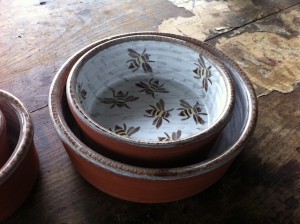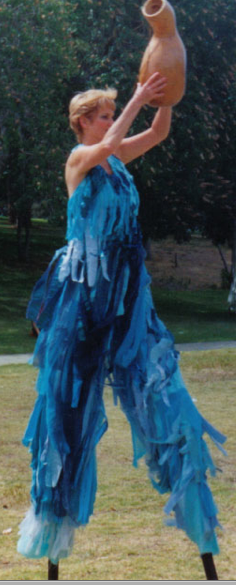The prose poem is a medium difficult to describe–a paragraph? a story? a reflection? It’s shorter than a story, but not in short lines. It should make you catch your breath the way a poem does, I think. This one, by Robert Hass, does everything it should:
A Story About the Body
The young composer, working that summer at an artist’s colony, had watched her for a week. She was Japanese, a painter, almost sixty, and he thought he was in love with her. He loved her work, and her work was like the way she moved her body, used her hands, looked at him directly when she made amused and considered answers to his questions. One night, walking back from a concert, they came to her door and she turned to him and said, “I think you would like to have me. I would like that too, but I must tell you that I have a double mastectomy,” and when he didn’t understand, “I’ve lost both my breasts.”  The radiance that he had carried around in his belly and chest cavity–like music–withered very quickly and he made himself look at her she he said, “I’m sorry. I don’t think I could.” He walked back to his own cabin through the pines, and in the morning he found a small blue bowl on the porch outside his door. It looked to be full of rose petals, but he found when he picked it up that the rose petals were on top; the rest of the bowl–she must have swept them for the corners of her studio–was full of dead bees.
The radiance that he had carried around in his belly and chest cavity–like music–withered very quickly and he made himself look at her she he said, “I’m sorry. I don’t think I could.” He walked back to his own cabin through the pines, and in the morning he found a small blue bowl on the porch outside his door. It looked to be full of rose petals, but he found when he picked it up that the rose petals were on top; the rest of the bowl–she must have swept them for the corners of her studio–was full of dead bees.
Robert Hass
I love how this story seems both pared down to the essentials and so natural, as if the poet were simply speaking to you, telling a story that at the end resonates like a stone dropped in a pool. So many echoes of feeling and experience radiate outward from the revelation to the gift.
It reminded me of a performance I saw maybe twenty years ago in a high school gym in Concord, California. It was a group called Women Walking Tall, women who dance on stilts. I don’t know if the group had a lesbian orientation; I’d just come for a dance performance. Concord can be a redneck town, though, and apparently someone felt this group was suspect. The street was lined with anti-lesbian protesters interspersed with police. The long walk from the car seemed charged and dangerous, and the lighted gym felt like a besieged enclave.  We sat on the bleachers, subdued and a little apprehensive. Finally the music started, slow and rhythmic; then eight or ten women came emerged, dancing on very, very tall stilts. They wore green and gold fringed pants that covered their legs and the stilts, so that they looked not so much like women on stilts as like some kind of long-legged, elegant creatures. From the waist up they were bare-chested. At least two of the women had had mastectomies. The long scars were like part of the costume. The women drew no attention to their breasts, present or absent; they simply and joyously inhabited their bodies. They danced in circles, slowly at first, then more and more wildly–exuberant and skillful. The small gym floor transformed into a ritual circle in praise of the living body. The noise of the protesters’ chants became part of the dance along with the red and blue strobes from the police cars flashing through the windows. Inside, we were part of a spell so strong that I have never feared physical disfiguration since–the dancers showed me that it is possible to praise the flesh whatever its form.
We sat on the bleachers, subdued and a little apprehensive. Finally the music started, slow and rhythmic; then eight or ten women came emerged, dancing on very, very tall stilts. They wore green and gold fringed pants that covered their legs and the stilts, so that they looked not so much like women on stilts as like some kind of long-legged, elegant creatures. From the waist up they were bare-chested. At least two of the women had had mastectomies. The long scars were like part of the costume. The women drew no attention to their breasts, present or absent; they simply and joyously inhabited their bodies. They danced in circles, slowly at first, then more and more wildly–exuberant and skillful. The small gym floor transformed into a ritual circle in praise of the living body. The noise of the protesters’ chants became part of the dance along with the red and blue strobes from the police cars flashing through the windows. Inside, we were part of a spell so strong that I have never feared physical disfiguration since–the dancers showed me that it is possible to praise the flesh whatever its form.